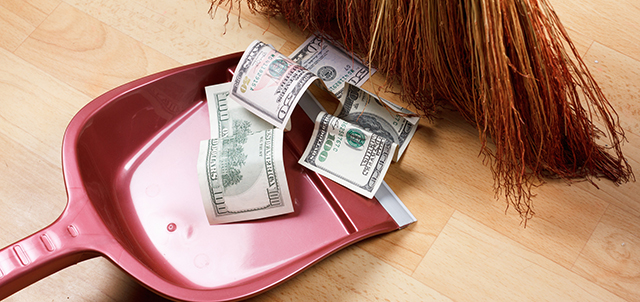Don’t Lose Interest: Managing Cash in Your Brokerage Account

You probably wouldn’t dream of leaving piles of cash lying around your home. But many investors end up doing this with cash in their brokerage accounts. Uninvested cash is a potentially valuable part of your investment portfolio. So it pays to pay attention to it, especially when interest rates move up or down. You should know the facts about your uninvested cash, the different cash management programs available and questions to ask.
What Is a Cash Management Program?
When you open a brokerage account, a firm typically asks you to select a cash management program for uninvested cash in your account. You may have cash that’s not invested because you deposited money in your account, you received cash dividends or interest, or you sold one or more of your investments.
A cash management program ensures that your uninvested cash is available to you when you’re ready to invest it or use it for something else, like paying bills. Some cash management programs let you pay your expenses directly or provide you with a debit card and check writing.
These funds can accumulate slowly, so you might not initially notice. But what happens to the cash in your account when you’re not using it?
Options for Managing Your Cash
Typical options for your uninvested cash include leaving it in your brokerage account, “sweeping” (automatically transferring) it to a bank deposit account as part of a bank sweep program, or sweeping it to a money market mutual fund as part of a money market sweep program. Many full-service brokerage firms offer only a bank sweep program, which can pay far less interest than a money market mutual fund account. Bank sweep programs do provide FDIC insurance up to the $250,000 limit per customer.
Uninvested cash left in your brokerage account is known as a “free credit balance.” Firms may or may not pay you interest on your free credit balance.
In a sweep program, a firm sweeps your uninvested cash each day from your brokerage account into a deposit account at a bank or a money market mutual fund. Firms typically pay you interest on your cash that’s part of a sweep program.
Note that you can always move your uninvested cash in search of higher interest rates. That’s true even if you’ve been automatically enrolled in your firm’s default cash management program. Just because you’re currently in your firm’s default option doesn’t mean you can’t explore other alternatives.
Exploring other options often makes sense because interest rates can vary widely depending on the particular cash management program or firm. Interest rates for money market funds, bank sweep programs and free credit balances sometimes are nearly the same; other times, particularly in a higher interest rate environment, the difference between their interest rates can be as much as 5 percent. You also may decide to invest your cash in securities or withdraw the available funds to invest elsewhere or use for other purposes. Researching the opportunities available will help you make an informed decision.
Understanding Your Uninvested Cash
When evaluating what to do with your uninvested cash, consider the following:
- How much uninvested cash is in my brokerage account?
- What cash management program am I in?
- What other alternatives are available to me?
- Which alternative offers the highest interest rate?
- Is FDIC insurance important to me?
To find the answers to most of these questions, check your brokerage account agreement or account statement to see which program you’re in and how much uninvested cash you have. Or discuss your uninvested cash and your options with your registered financial professional.
Also consider these funds in the context of your overall financial planning. Do you need this cash in the short-term or could you use it to support your long-term goals?
Many investors think of cash management programs as short-term resting places, but their uninvested cash often ends up staying there far longer than planned. Make sure your cash is in the best place for you, whether that means maximizing your interest rate or other considerations.



